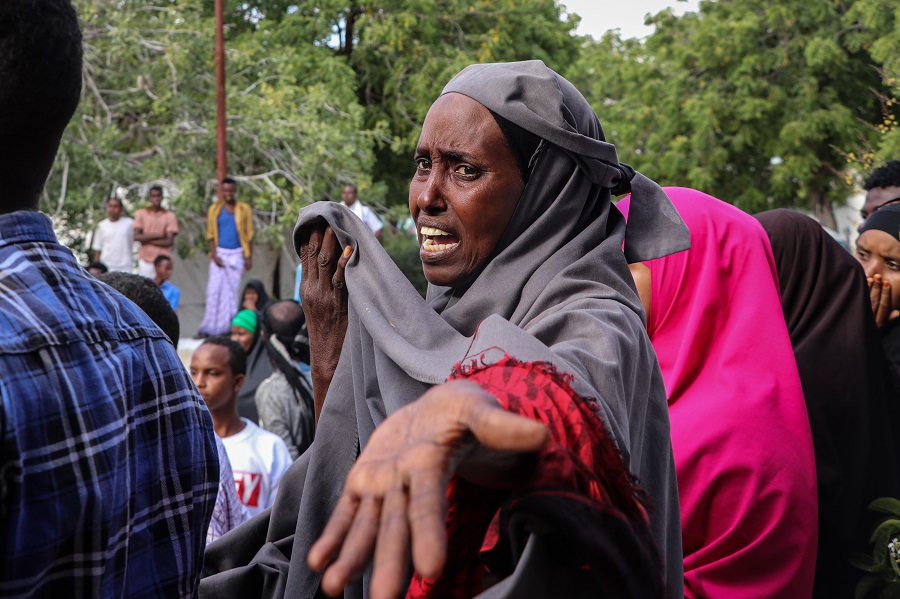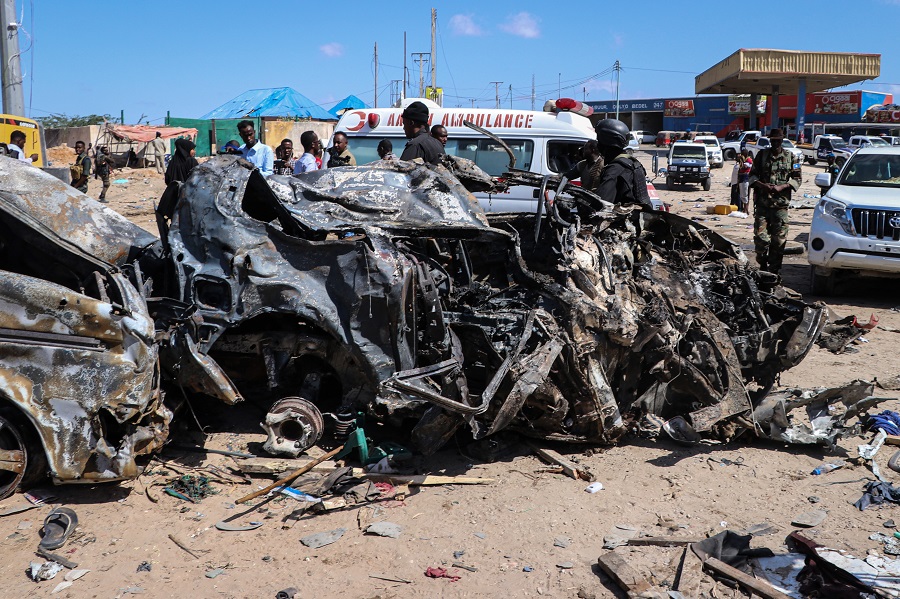JEDDAH: At least 90 people were killed on Saturday when a bomb in a truck exploded at a checkpoint during the morning rush hour in Mogadishu, the capital of Somalia.
Many students, several police officers and at least two Turkish nationals were among the dead. A small team of Turkish engineers had been working near the site of the blast, building a road into the city.
No group admitted carrying out the bombing, but the city’s mayor Omar Mohamud blamed the militant Al-Shabab organization, which is linked to Al-Qaeda.
Videos of the attack were captured by witnesses and shared over social media.
More than 30 school and university students who have been traveling on the road at the time of the blast are among those killed and injured in the truck bombing on the outskirts of Mogadishu. Most of the victims were civilians. pic.twitter.com/1Roga55LGz
— Somalia Live Update (@HassanIstiila) December 28, 2019
Traffic is usually heavy at the Ex-Control Junction, where heavily armed security forces check vehicles for explosives and weapons. There is also a government tax collection point at the junction, where fees are taken from buses and trucks.
Sabdow Ali, 55, who lives near by, left his house when he heard the explosion, and counted at least 13 bodies. “Dozens of injured people were screaming for help but the police opened fire and I rushed back to my house,” he said.
The injured were transported to Medina Hospital, where a nurse said they had admitted more than 100 people. At least 16 of those killed were students from Banadir University, who had been traveling on a minibus when the truck bomb exploded.
My heartfelt prayers and sincere condolence to the families of their innocent citizens. I have had nightmare seeing images out of Mogadishu. Especially of kids that were cought up in senseless killings of people who were going on with their daily lives so sad so cruel
— Abdimahad Borre (@Abdimah37172142) December 29, 2019
“What happened today was horrible,” said one student who feared his sister had been on the bus. She was later found safe.
“I was among several students who rushed to the hospital after we heard. I counted the bodies of 16 male and female students, some of them had parts of their bodies severed.
“The minibus carried 17 students and only one of them survived. He had left the bus before the blast to get a pass receipt from the tax collection point.”

A Somali woman reacts as victims from a car bombing attack are brought to the Madina Hospital in Mogadishu, on December 28, 2019. (File/AFP)
Al-Shabab regularly carries out such attacks in an attempt to undermine the government, which is backed by the UN and African Union peacekeeping troops. In October 2017, a truck bomb exploded next to a fuel tanker in Mogadishu, creating a fireball that killed nearly 600 people.
The group sometimes does not admit carrying out attacks when there is a large public backlash, such as the 2009 suicide bombing of a graduation ceremony for medical students.
Al-Shabab is the youth wing of the former Islamic Courts Union, and pledged loyalty to Al-Qaeda in 2012.

The wreckage of a car that was destroyed during the car bomb attack is seen in Mogadishu, on December 28, 2019. (File/AFP)
The African Union peacekeeping force is scheduled to hand over responsibility for security to Somali troops next year, although the date keeps changing.
“Somalia is not ready to take over control of security next year or the year after,” said Hussein Sheikh-Ali, founder of the Hiraal Institute, a security think tank in Mogadishu.































